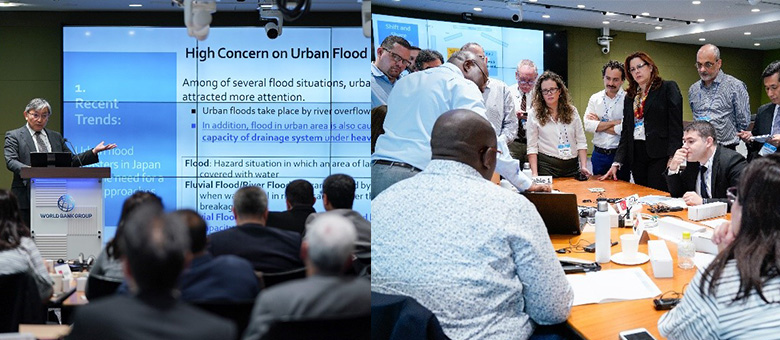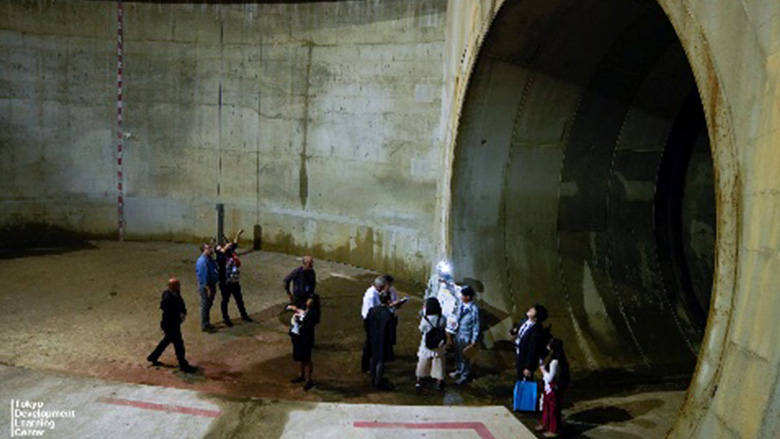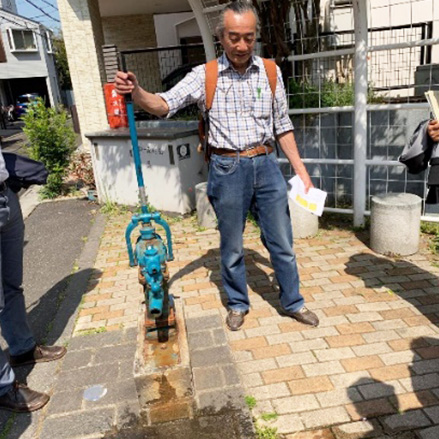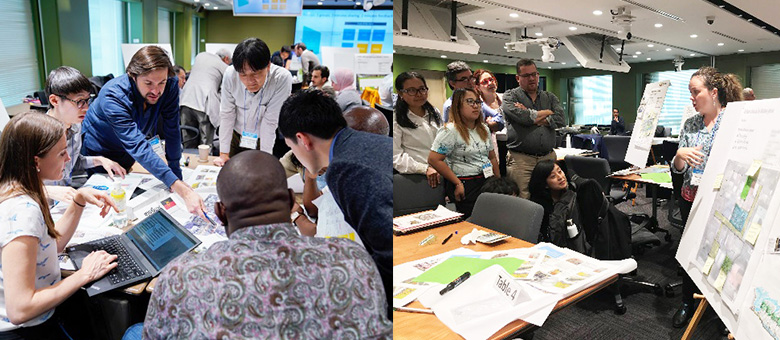April 22-26, 2019
Tokyo, Kobe, Osaka
Floods are the most frequent natural disaster, affecting 85 million people on an annual average globally[1]. Against the backdrop of demographic growth, urbanization trends and climate changes, damages in urban areas are becoming more problematic, the causes of floods are shifting, and their impacts are accelerating.
The World Bank’s Urban Floods Community of Practice (UFCOP), Tokyo Development Learning Center (TDLC), and Tokyo Disaster Risk Management (DRM) Hub jointly organized a 5-day Technical Deep Dive (TDD) on Integrated Urban Floods Risk Management (IUFRM) with the Government of Japan providing learning opportunity to World Bank client countries. Practitioners and decision makers from Albania, Angola, Jordan, Lao PDR, Myanmar, Panama, Paraguay, Turkey, and Vietnam joined the TDD to share their experiences, deepen their knowledge, and learn from each other, global and Japanese experts on how to inform the investments in IUFRM. The TDD Program comprised presentations and discussion sessions with sector experts, site visits, a mini-studio, and action planning. These were conducted in Tokyo, Kobe and Osaka.

Photo (right): Participants listening to presentation by delegation from Angola on their experiences in IUFRM
Source: World Bank
Learning and Key Takeaways
Experts from the World Bank, Japanese public and private sector, and other countries presented their experiences and learnings on IUFRM. The discussions were concentrated around the following four key topics: (1) urban flood risk assessment and communication processes, (2) the planning and prioritization of flood risk reduction investments, (3) the implementation of these investments; and (4) how these investments are operated and maintained with a view to sustainability.

Source: World Bank TDLC
Participants visited Osaka to understand the comprehensive flood control system of Neyagawa Basin. The Prefectural government made presentations and facilitated site visits to Matsubara Minami Balancing Reservoir and the Wakae Underground Reservoir to help participants learn first- hand how these individual facilities contribute to the comprehensive flood control plans of eastern area of Osaka Prefecture, where one third of the population resides.

Source: World Bank
As part of the Mini-Studio exercise, delegations visited one of the three designated neighborhoods/ project sites in Sumida Ward, Tokyo, offering an array of community-led rainwater harvesting and utilization measures implemented by a wide range of collaboration mechanisms of stakeholders. Later, each delegation proposed design ideas to increase the sites’ capacity to manage rainwater (75mm/hour rainfall), using nature-based tools. [Integrating Green Solutions for Urban Flood Resilience]
During the Action Planning session of the TDD, participants presented the key takeaways, including the strategies to inform the ongoing and planned investments in strengthening urban flood risk management back home. Overall, key lessons learned from Japan included: (i) development of financial strategies and mechanisms to maximize private sector funding toward IUFRM, (ii) development of risk-informed holistic plans, including social, spatial, technical, and financial plans, (iii) improvement of stakeholder coordination mechanisms in the planning and execution of structural and non-structural measures, and (iv) learning from each disaster to improve institutional capacity and DRM plans.

Photo (right): Country delegation presenting its design proposal
Source: World Bank
Way Forward
Moving forward, the World Bank team will be following up on requests of the participating countries, including training in planning and strategy building, technical support in awareness raising programs, and support in developing urban plans and strategies. This will be addressed through technical assistance (TA) support, Japanese and global expert deployment, knowledge exchange programs, among others. UFCOP will continue to serve as a knowledge hub for IUFRM and offer insight and practical lessons in mitigating risks caused by urban floods.
![]() [1] https://www.emdat.be/ EM-DAT CRED 2017
[1] https://www.emdat.be/ EM-DAT CRED 2017
